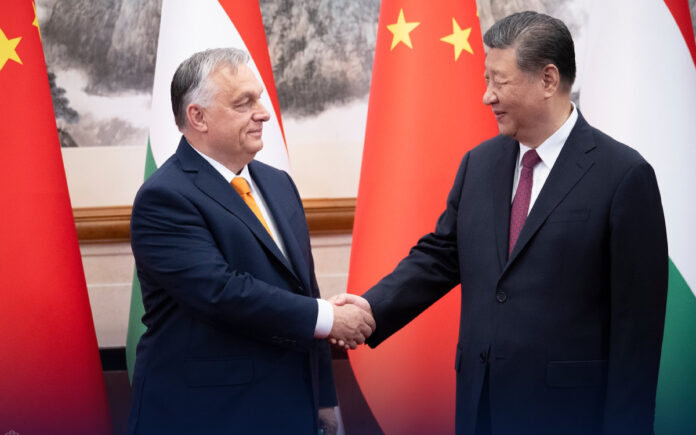Beijing: Chinese President Xi Jinping called on world powers to assist Russia and Ukraine in resuming direct dialogue during a meeting with Hungary’s Prime Minister Viktor Orban on Monday, as reported by state broadcaster CCTV.
Orban, who recently visited Russia and Ukraine in his role as Hungary assumed the EU presidency, made an unexpected trip to China to discuss prospects for a peaceful resolution to the ongoing conflict.
“China is a key power in creating the conditions for peace in the Russia-Ukraine war,” Orban wrote on the social media platform X. “This is why I came to meet with President Xi in Beijing, just two months after his official visit to Budapest.”
Known for his close ties with both Xi Jinping and Russian President Vladimir Putin, Orban’s diplomatic efforts have drawn criticism from Kyiv and EU officials, who maintain he does not represent the entire European bloc.
Despite the backlash, Orban proceeded with his visit to Beijing, labeling it “Peace mission 3.0” in a social media post on X.
During their meeting, Orban praised China as a stabilizing influence amid global instability and lauded its constructive peace initiatives.
China has been advocating for a six-point peace plan, jointly proposed with Brazil in May, and claims neutrality in the conflict while bolstering ties with Moscow through state visits, trade growth, and joint military exercises.
Also Read | Key Provisions of India’s New Criminal Laws: A Comprehensive Overview
In discussions with Orban, Xi Jinping urged Russia and Ukraine to cease hostilities and called on major powers to create a conducive environment for dialogue. According to CCTV, Xi emphasized the importance of projecting “positive energy” to achieve a ceasefire.
In recent years, Hungary has significantly developed political and economic relations with China, hosting several Chinese electric vehicle battery facilities and announcing plans for a European EV production factory with BYD.
Also Read | India and Thailand Deepen Military Collaboration with MAITREE 2024 in Tak Province
Prime Minister Orban’s stance against Western military aid to Ukraine and his opposition to sanctions on Russia have strained relations with EU and NATO allies, who view Russia’s actions as a violation of international law and a threat to Eastern Europe’s security.
Orban’s diplomatic journey will continue as he heads to Washington, D.C. for a NATO summit, where discussions on supporting Ukraine will take center stage.



